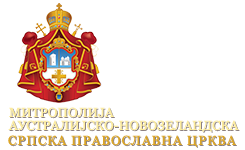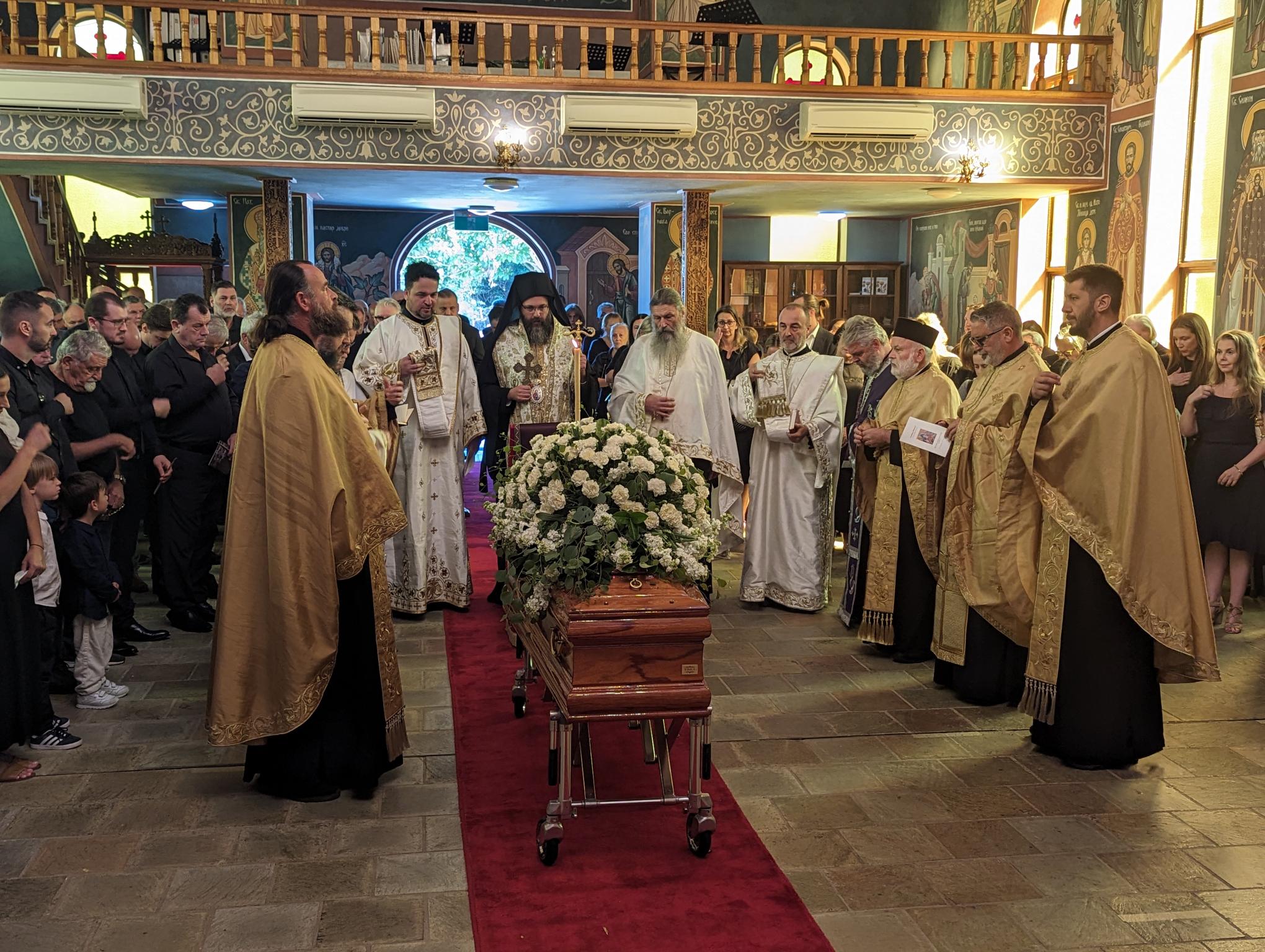Страна 3 од 4
EULOGY OF PETER RADAN SPOKEN AT THE FUNERAL OF HIS LATE FATHER, DJUKA RADAN
Your Grace, Reverend Fathers, family and friends,
101 years and 11 days ago, my father was born in the village of Pađjene in the Dalmatia region of what was then known as the Kingdom of Serbs, Croats, and Slovenes. It was only in the last few years of his long life that he spoke at some length about his life in the village.
Details of those times I initially obtained when speaking to those who knew him then, especially so when I visited Pađjene in 1978 and 1993.
What I particularly recall from those conversations was, and it will come as no surprise to any of us, that as a child growing up in the 1920s and 1930s, dad could be what is best described as a lovable rascal.
During his childhood years, much like his contemporaries, dad received little formal education.
His real education he gained from the lived experiences of the years from 1941 to 1949. And it was those experiences that indelibly defined the essence of the man that dad became.
The first four of those years were ones of civil war and revolution in the wake of the dismemberment at the hands of the Axis powers of what was then known as the Kingdom of Yugoslavia.
This led to the then teenager to join the royalist resistance movement led by General Draža Mihailović, popularly known as the Četniks. Dad’s participation was as a soldier in the Dinaric Division under the command of Vojvoda
Momčilo Đujić.
These war years were a complex combination of a war of resistance against the Axis occupiers, a civil war against the Communist led Partisan movement, and a struggle for survival against the genocidal Ustaša forces in the so-called Independent State of
Croatia.
For dad and many thousands of his fellow Serbs the outcome of these brutal and bloody conflicts was a 1,000 plus kilometre march into exile from their homes into Slovenia during the bitter winter of 1944-45 and subsequently into a displaced persons camp in
Eboli in Italy.
It was there, in 1946, that he married my late mum, Dragica, also from Pađjene. From Eboli they were later transported to camps in Germany, where my sister Dušanka was born in December 1947.
When it finally came time to choose a county that would accept them as refugees, on the basis of hearing that it was a land of opportunity, mum, dad, and Dušanka arrived in Australia on 1 August 1949.
Within a few years they had their first home, a three-room fibro house in Warriewood, soon after which I was born in April 1953. My brother, Rade, completed our family when he was born in June 1956. In 1963, the family had a new home in Wattle Road, Ingleside.
The last Radan household was built in the early 1980s at Manor Road, Ingleside. All the places where we lived were farming properties, in which working from dawn to dusk, and, when needed, into the night, was the norm. For dad, the only qualification to this
regime of toil was his obligatory early afternoon siesta.
For dad, this commitment to work had a two-fold purpose. Given that he well knew the insecurity of being uprooted from his homeland and arriving in Australia with little more than a suitcase or two, the first purpose was to establish the family with a home and to
provide a better life, not only for mum and dad, but especially so for their three children.
In this, dad was persistent. As a child growing up, I lost count of the times that he said that what he wanted for me when I grew up was that, as he put it, when I went to work I would do so wearing a tie, rather than having to work with a shovel.
Dad’s other purpose was to be able to meaningfully contribute to the growth and development of the Serbian community in Australia. In relation to the Serbian Orthodox Church, and in particular the St Sava Parish at Elanora, his efforts and contributions
were recognised in 2003 when Patriarch Pavle and the Serbian Orthodox Church bestowed upon him the Order of St Sava. Furthermore, dad was a tireless worker for, and supporter of, his war veteran’s organisation, the Movement of Serbian Četniks Ravna Gora, of which he was a founding member and President for several years.
Dad’s unshakeable commitment to both the Church and the Movement stemmed from his Serbian identity with its religious and cultural traditions that he imbibed in his childhood years and fought to defend in World War II.
However, dad was not only a proud Serb. He was also a proud Australian. He never forgot that Australia gave him the opportunity to make a life for himself and his family.
However, as a person who was displaced from his homeland, I know that he also had a heartfelt empathy for Australia’s similarly displaced indigenous peoples. Nevertheless, I still vividly recall the day, many years ago, when he said to me that I should never forget that Australia had given him, and eventually all of us, a good life. And, he did have a good life in Australia. I still recall the many occasions during my childhood him saying “enjoy yourself”, an expression that he heard from the wife of a wonderful Slovenian man who generously helped our family during mum and dad’s early years in Australia.
It will thus surprise nobody here today that the loveable rascal child that he once was, was a social creature who always enjoyed the company of his family and friends. On such occasions, for many years he enjoyed roll-your-own and later filtered Peter Stuyvesant cigarettes, always accompanied by a beer or two. On these and various other occasions, and indeed until his last days, he would occasionally indulge in his love of singing. One such unforgettable occasion for me was when dad and his beloved brother Ratko and cousin Miško – Pađjene’s three tenors – regaled us with songs sung in their village and during the war. And it would be remiss of me not to mention the spontaneous and unforgettable one-liners that he regularly came up with that usually left us, and all who subsequently heard them, in tears of laughter.
Today, as we bid our farewells to a man who was a father, a grandfather to 10, now grown up adults, and, to date, great-grandfather of 16 great-grandchildren, we remember an honourable man who loved, and was loved, by all of us and who devoted
his life to his family and his Serbian community. Although he is no longer with us, we can be comforted in the knowledge that he is now back with my mum and all of the friends and relatives that were his contemporaries. And, of course, Pađjene’s three tenors are
back together again to entertain all of them.
Our sadness today will pass, but in time we will be comforted with the unforgettable and shared memories of, not only the many instances in which we received his love and support, but also the countless ways he made us laugh.
May he rest in peace. Vječnaja pamjat.
26 March 2024


